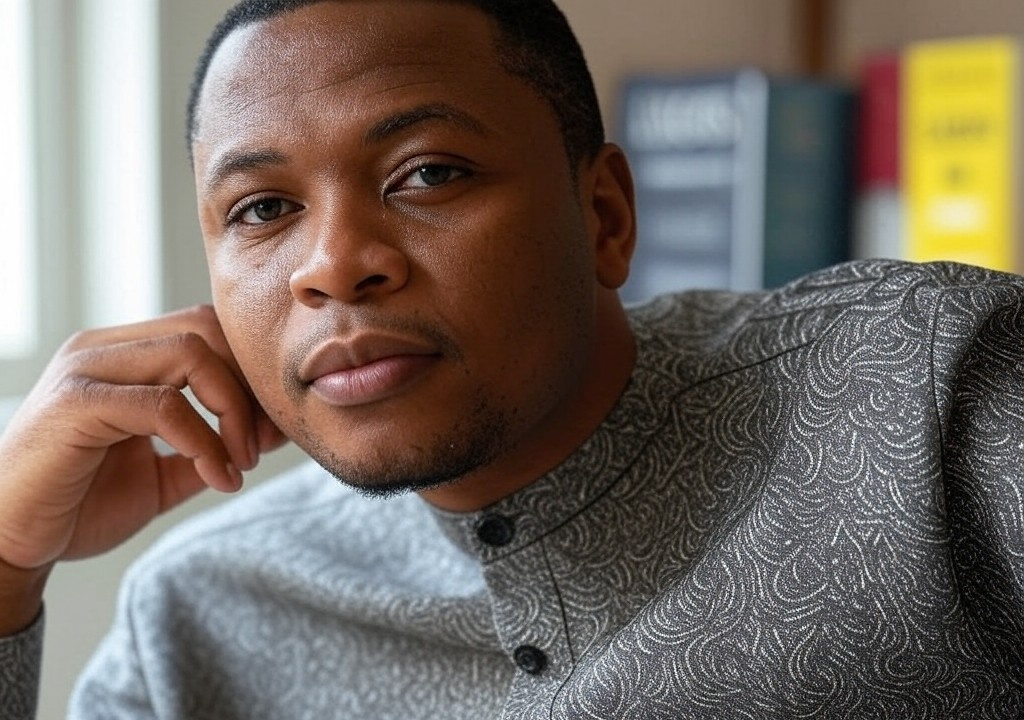"That Time I Didn’t Take the Leap – and What It Taught Me"
We all have chapters in our lives that haunt us—those “I should’ve just gone for it” moments that replay in our heads like the background track of a Netflix drama. Mine? It’s the story of how I failed spectacularly at embracing risk, and in my unwillingness to leap, I learned resilience—ironically, by falling flat on my face. (Metaphorically, of course. The literal face-planting came later.)
Let me take you back to Lagos, summers rich with heat and laughter spilling from family gatherings, where I grew up learning to tell stories under my grandparents’ mango tree. It’s also the setting of my first big failure. You could say things went downhill from there—straight into emotional quicksand. But hey, like quicksand, at least it was immersive.
The Setup: “What Could Go Wrong?”
The scene: I’m eleven. I’ve got a shiny new notebook from my dad’s shop. It looks sturdy, filled with potential, the closest thing to a blank canvas for a kid with too many stories swirling inside his head. Last week, I announced to my entire extended family that I would be writing my first “great Nigerian novel.” (Yes, I was that kid.) Writing came naturally to me at school, essays earning praise from my teachers and even one memorable silver medal at a statewide competition. I was hyped—half dreamer, half show-off.
My family seemed equally jazzed. “You’ll be the next Chinua Achebe!” they said, almost like a chant.
With this newfound pressure clamped tightly around me, I started drafting. The first chapter was tough—the page looked at me like an unblinking judge. How did Chinua Achebe start? Would Ogbanje spirits approve of my first paragraph? Half my cousins peeked over my shoulder, while the other half demanded updates like editors with no filter. No pressure, right?
The Crash: “Dear Diary … I Quit.”
After weeks of agonizing rewrites, I had a blazing idea for the story's climax: a village boy (naturally a stand-in for my eleven-year-old self) leaves home to join a traveling dance troupe of masquerade performers. This troupe was to symbolize freedom and, of course, destiny. So meta, I know. I could practically smell the awards ceremony in advance.
But right in the middle of drafting—BOOM!—I froze.
What if people hated it? What if my cousins, once my hype team, turned savage critics? Or worse, what if no one cared at all? The self-doubt hit like that first awkward silence on a bad date: unbearable, suffocating, loud. What I now know as imposter syndrome had a younger version of me completely cornered. I missed deadlines I had made up for myself, scrapped everything, and decided my family didn’t need this literary disaster.
“Oh, I'm just too busy with school right now,” I muttered whenever anyone asked about my “masterpiece.” The mango tree could’ve told you: I was lying.
Instead of trying harder, I retreated. My little failure became a big one, eroding both my courage and my confidence. That first half-finished draft turned into years of fearing failure and shelving ideas before they truly had the chance to grow. I’d like to say this cycle ended when I got older, but honestly, I kept carrying it, like emotional luggage, through my teens, my twenties, and even into dating.
The Pivot: Learning From a Flopped “First Draft”
Now, you might be thinking, “Okay, Malik, writing a novel as a kid isn’t exactly top-tier failure territory.” Fair enough. But the lessons hit harder than I could’ve imagined back then. It wasn’t really about the novel. My failure and retreat had set a pattern. I looked at life like a chessboard, every move cautious and calculated, afraid that stepping outside my comfort zone might swing me into chaos—or, worse, public embarrassment.
You know where this mindset really harms you, though? Relationships.
When I first moved to Brooklyn, my careful, risk-averse dating self thought I could calculate attraction like it was an equation. Spoiler: This doesn’t work. If my eleven-year-old failure is embarrassing, my early Brooklyn dating life was an absolutely cringe-worthy rom-com montage (minus the upbeat soundtrack). Bad communication? Check. Overthinking every text reply? Double check. And then there was the time I bailed on asking someone out because I convinced myself she'd instantly say no. Sound familiar?
I needed to stop playing scared and take risks—not the skydiving kind but emotional ones: writing badly on purpose, trying even if it’s awkward, starting conversations when I don’t have the perfect opener rehearsed. When I remembered my abandoned “great Nigerian novel,” life clarified something for me.
Mistakes don’t end you; they springboard you to the next draft. And guess what? Life is a draft.
1 Mango Tree, 3 Lessons
Let’s break it down for clarity (and because everybody loves a list):
-
Perfection is Fiction.
Whether it’s a relationship or your goals, you can edit, adjust, and rewrite later. Don’t let the fear of starting ugly stop you. Spoiler: Nobody cares as much as you think they do. -
Be Willing to Look Ridiculous.
Take the shot. Tell the joke that might flop. Dance in the kitchen when it feels right, even if it looks terrible. Risks that make you vulnerable often give you confidence—not when you succeed, but when you simply survive. -
Celebrate Doing, Not Just Finishing.
As kids, we run naturally toward our goals—there’s less noise, fewer filters. Celebrate the fact you’re trying something at all. Effort is the currency. Keep spending it.
The Comeback: Final Drafts Are Always Better
I sat at my desk the other night, long after my wife (yes, you read that right: the nervous overthinker did eventually ask someone out, and it worked out better than any draft I could’ve scripted) had gone to bed. Out of old habit, I started flipping through the actual first novel I wrote as an adult. And wouldn’t you know it? The protagonist—not-so-subtly inspired by my eleven-year-old self—joins a traveling masquerade troupe.
Talk about ghosts from a mango tree.
Turns out, that first big failure wasn’t a dead-end. It was rehearsal. The most important rehearsal I’d ever have for living, laughing, and loving. Failure? Nah. Foreshadowing.
So, if you’re in the thick of falling on your face right now—relationships, career, whatever—pause for a second. Ask yourself: What if this is just your first chapter? Not the one where the story ends, but the one where it gets good. Trust me. Drafts get better. They always do.




















